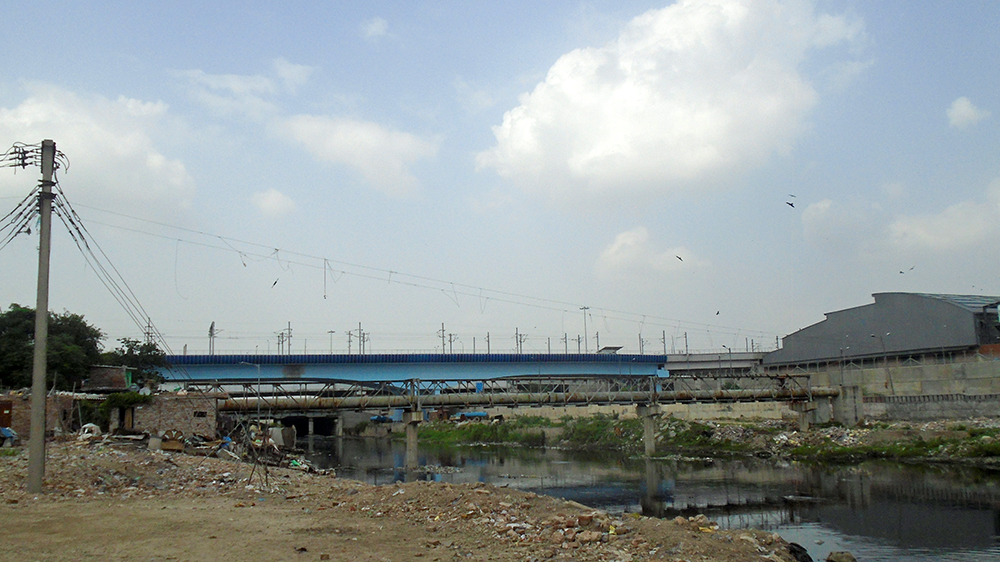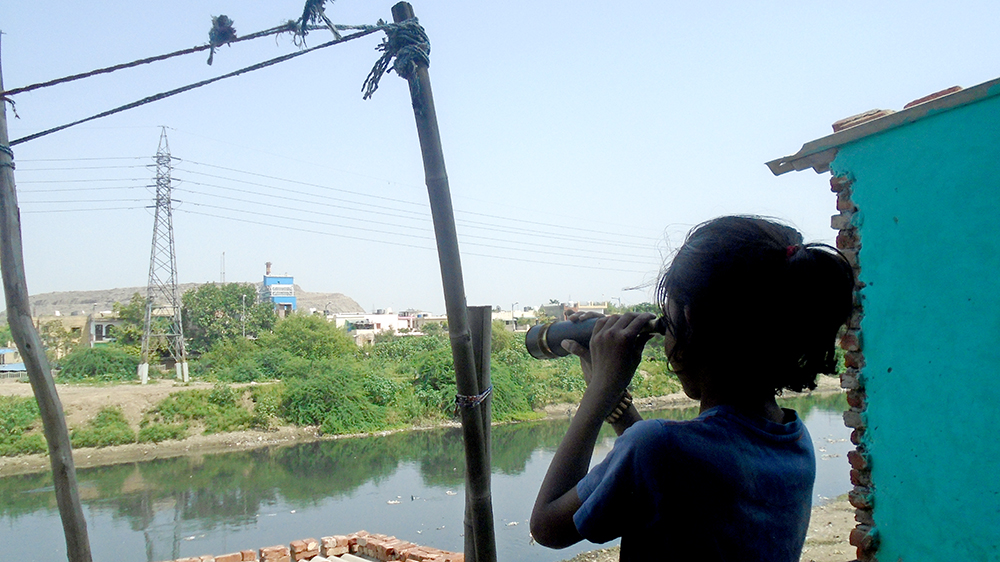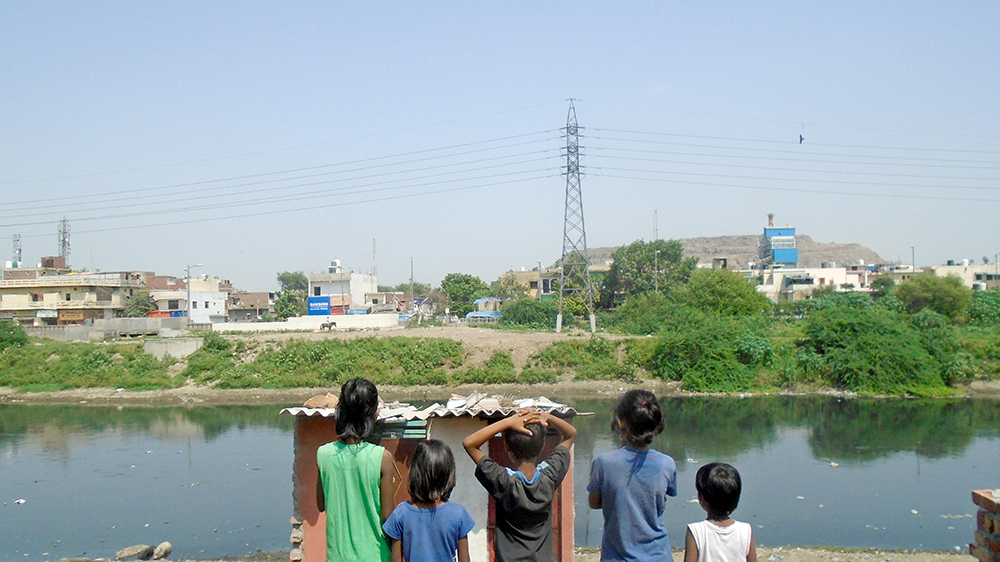Khichripur is often referred to as the most polluted neighbourhood in Delhi. The neighbourhood is located in East Delhi near the Ghazipur drain and the Ghazipur landfill. It is just off National Highway 24 that goes from Delhi towards Uttar Pradesh. This short piece is by a 13-year-old resident of Khichripur about her life in the basti.
§
In the morning, the foul smell is not as strong. I leave for school. After I come back from school I sit at home and study. That’s when my mother says, “You’ll have to work in the future anyway, so what is the point of studying so much? Right now you need to be responsible and work!”
Ma leaves for work at seven in the morning. We are three brothers and one sister. I take care of them.
She comes home by 12. I get some time to play. I go to my friend’s house and feed grains to the pigeons.
After playing with the pigeons I come straight home, go to my room and look at myself in the mirror. Next to the mirror is a picture of Bahubali. You see, this only is my sin. Ma says, “You use the excuse of looking in the mirror to gaze at Bahubali – stop playing at being a hero.”
I just don’t understand what she means. Is she complementing me or making fun of me?!

Making a face, Ma says, “Do as I say!”
“Ma, first let me play!”
“Why? What do you do while I’m at work? You must be just sitting around doing nothing?”
“Arre no, Mammi, I take care of my brothers and sisters.”
“Straighten up,” Ma starts to say, “Your papa has lost his job, and he has to look after his kids. You are just adding to the burden on us.”
“Mammi, after you leave, Pita ji just goes out to drink with his friends.”
“You rascal, how dare you talk about your father that way!” My mother comes after me with a stick and starts threatening me. But I know that there is affection in her threats too.
Ma doesn’t listen to me and, taking Pita ji’s side, starts scolding me. Scoldings meant for my father also fall in my lap.
Giving some excuse, Pita ji leaves the basti and goes somewhere to pass the time, enjoying himself with abandon. All of the responsibility falls on Ma’s shoulders. Before, Pita ji worked as a cleaner in the Ghazipur market.
In winter, the skin of Pita ji’s face crinkles up and his hands become tough like leather. His eyes are always partially red.
When he comes home in the evening, he sits on the cot and smokes a beedi. For a few moments, everything seems to stand still.
Smoke wafts out of Pita ji’s beedi and my attention drifts outside, drawn by Moti’s voice. Moti is the dog who lives in our lane. He is a bit tormented like me. After wandering around all day looking for food, he comes to sit at our door.
Inside the jhuggi, the smoke of the beedi becomes suffocating. As long as Pita ji – and with him, the smoke of the bidi – is at home, I cannot go outside. The fan on the ceiling moves at a slow speed. The door in the house serves as a window as well. It is the only opening through which the air and I can enter and leave.
I feel like going outside. Ma is cooking rotis on the clay stove next to the door. My attention turns to Ma’s forehead. The flames of the fire are hitting her forehead and sweat flowing from it. She keeps wiping the sweat off her forehead with her wrist. Pita ji’s eyes are glued to the TV.
Tired, I turn my face outside and sit down. I spot children playing near the sewer. The sewer is very big and its water is totally black.
The lanes of the basti are connected to each other, and even in silence, sounds echo through them. There is a constant surge of air here which swells with a strange smell.
Basically we don’t have anywhere to play here. Sometimes we play on a charpai in the small yard, sometimes very quietly in a corner of the house or on the open veranda.
Sometimes we spin a top or make houses out of bricks. Outside the house, there are piles of garbage, mounds of trash and heaps of plastic bags. Drains are like swamps full of dirt and water. It is out of all of these things that we create the materials for our daily entertainment.

Eagles fly right over Ghazipur’s chicken market.
There is a mountain of garbage, and the eagles constantly hover over this mountain. Though they are flying in the sky, their eyes remain fixed on the pile of garbage on the ground.
A gust of wind comes, diffusing a horrible smell through the entire basti.
But the home of the eagles is not, after all, the sky. That’s why, soon after filling their stomachs, they return, again, to the chicken market. How I wish I could fly like them, so that I could just fly off and take a joy ride through the trash mountain and the chicken market.
Rocky is a 13-year-old in the eighth standard, who lives near the Delhi landfill in Khichripur. This story was translated from the Hindi by Thalia Gigerenzer. She is a German-American writer, anthropologist and audio producer based in Princeton, NJ, Berlin and Delhi.
All images by Rakesh Kheraliya, Ankur Society for Alternatives in Education.

